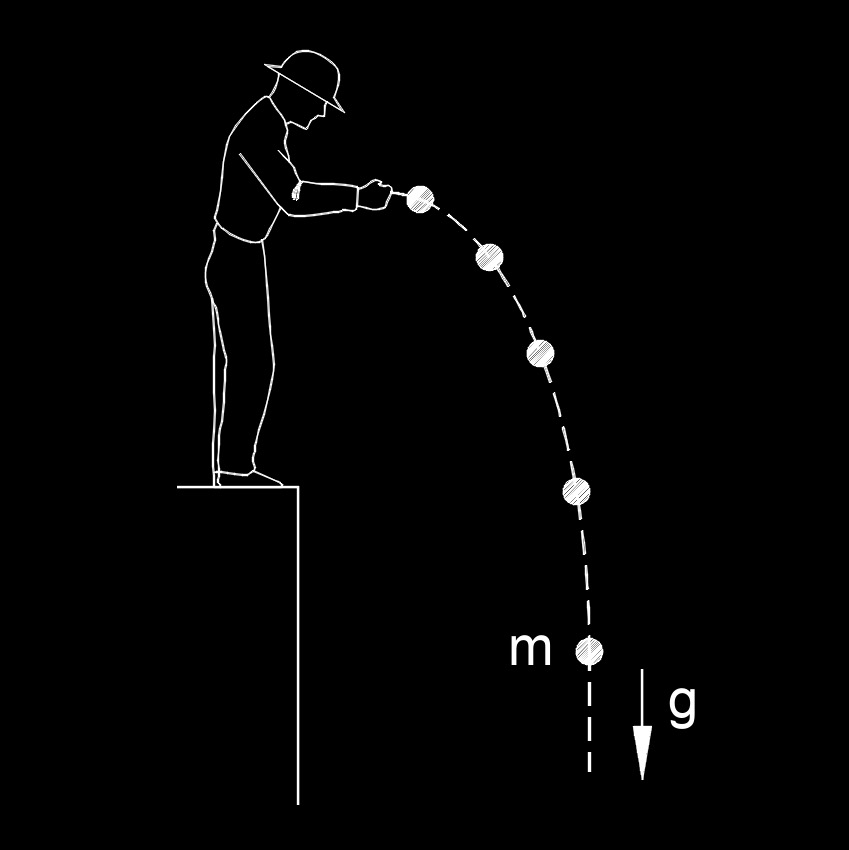Gravitational Acceleration
Gravitational Acceleration Formula |
||
|
\( g \;=\; \dfrac{ G \cdot m }{ r^2 }\) (Gravitational Acceleration) \( G \;=\; \dfrac{ g \cdot r^2 }{ m }\) \( m \;=\; \dfrac{ g \cdot r^2 }{ G }\) \( r \;=\; \sqrt{ \dfrac{ G \cdot m }{ g } } \) |
||
| Symbol | English | Metric |
| \( g \) = Gravitational Acceleration (See Physics Constant) | \(ft \;/\; sec^2\) | \(m \;/\; s^2\) |
| \( G \) = Universal Gravitational Constant | \(lbf-ft^2 \;/\; lbm^2\) | \(N -m^2 \;/\; kg^2\) |
| \( m \) = Mass of the Celestial Body | \( lbm \) | \( kg \) |
| \( r \) = Radius (Distance from the Center of the Mass to the Point Where g is Measured) | \( ft \) | \( m \) |
 Gravitational acceleration, abbreviated as \(g\), also called acceleration of gravity or acceleration due to gravity, is the force on an object caused only by gravity. It represents the rate at which an object's velocity changes when it falls freely near the surface of a celestial body, such as Earth.
Gravitational acceleration, abbreviated as \(g\), also called acceleration of gravity or acceleration due to gravity, is the force on an object caused only by gravity. It represents the rate at which an object's velocity changes when it falls freely near the surface of a celestial body, such as Earth.
On Earth, the gravitational acceleration is a constant:
g = 9.80665 \(\large{\frac{m}{s^2}}\) (Metric)
g = 32.1740 \(\large{\frac{ft}{sec^2}}\) (English)
It is important to note that gravitational acceleration is not constant across the surface of a celestial body. It can vary slightly due to factors such as the body's shape, altitude, and local gravitational anomalies caused by variations in the distribution of mass. However, for practical purposes, a uniform value is commonly used in most calculations involving everyday scenarios.

